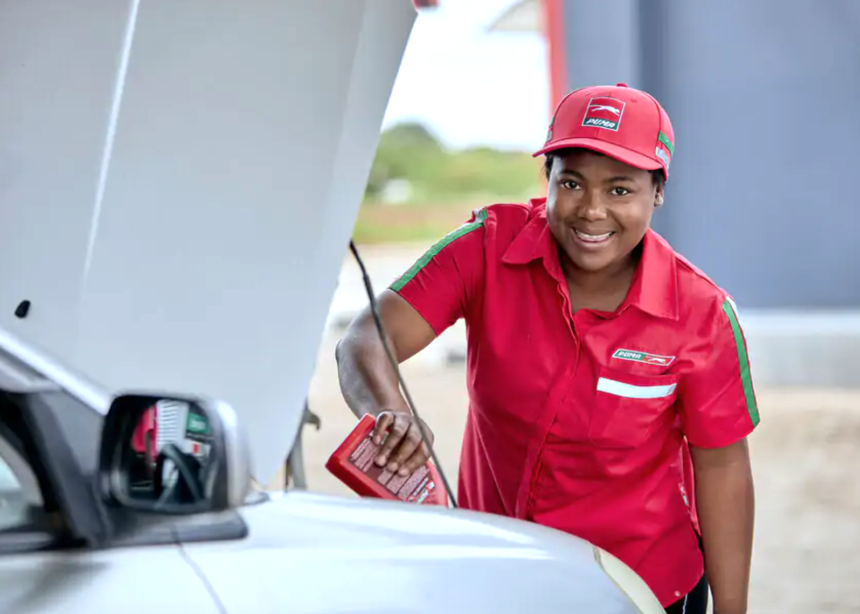Puma Energy Namibia has announced the implementation of free Wi-Fi for its customers at 10 filling stations in Windhoek, with the last three scheduled for installation by the end of this week. However, Puma has emphasised that the use of cellphones at these sites will be subject to strict safety rules, as the company is committed to protecting its customers and employees.
Adell Samuelson, Puma Energy Namibia’s general manager, said the company is planning to extend free Wi-Fi service to about 90% of Puma Energy Namibia sites throughout the country. Free Wi-Fi is another service offered to customers, in addition to the convenience shops and quick-service restaurants at certain filling stations.
He advised cellphone users to exit their vehicles and move away from the forecourt during the fuelling process. Signs prohibiting the use of cell phones near filling pumps have been put up at all filling stations.
According to the provisions of Namibia’s Petroleum Act, no one is allowed to receive or make a call or text on cellphones or any other electronic apparatus within two metres from a dispensing pump, or any other petroleum supply point. When fuel is dispensed from a fuel tanker into an underground storage tank, the user of a cellphone or any electronic equipment should be at least 15 metres away from the process. Any person who contravenes or fails to comply with any provisions of the regulation shall be guilty of an offence.
“Safety is Puma Energy’s top priority. That’s why the company strictly enforces its policy regarding the safe use of cell phones at its filling stations. This policy is in compliance with Namibia’s Petroleum Act, and according to scientific evidence that warrants this cautionary practice.
All mobiles and wireless devices transmit and receive electromagnetic waves. These waves can induce current, and generate an electric spark in metal conductors. This can be hazardous near a fuel pump.
Drivers and vehicle owners are advised to inform passengers or colleagues about the non-use of phones near the filling process.
Radio waves emitted by phones, while they are unlikely to directly ignite fumes, can potentially interfere with sensitive equipment at fuel stations. This could lead to pump malfunctions or inaccurate readings.
“Remember, a few minutes of phone-free vigilance can prevent accidents and ensure everyone’s safety. Thus, next time you pull up to the pump, put your phone away, and focus on fuelling up safely,” Puma Energy Namibia stated.
The statement added that bank point-of-sale devices are certified as essentially safe for use in hazardous environments. Thus, vehicle owners can pay fuel transactions by credit or debit card on the forecourt. Regular cellphones do not have this safety certification.


